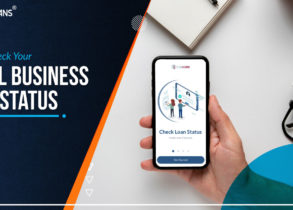Sep 10, 2021

Introduction
The COVID-19 pandemic has unveiled a whole new way of life, especially when it comes to workplace accommodation or handling a business. Although the effect of the pandemic on the physical, social and mental front is going to be long lasting, the economic aspect seems to be recovering sooner than expected. However, the growth in 2021 is slow and steady amid the possibility of the breakout of the Delta variant. With that said, if vaccination drives keep their pace and the Delta variant is contained efficiently, 2022 will be a year of growth in leaps and bounces.
In this blog, we will discuss various steps for starting a small industry. If you plan to work on your small scale business ideas, you must already be familiar with the market conditions. As a business owner, doing background research is the first and foremost thing one should do before putting their feet into deep waters.
Steps to Start a Small Business
Do what you like
Before putting in your effort and money, try to figure out the answer to some of the fundamental and philosophical questions, like what motivates you to start a small scale business and why start a particular business? These answers will not only declutter your business idea but also help in making a unique marketing pitch. Before starting your own business, it is always good to do trend analysis for inspiration and ideas.
Once you are done with the basic questions, here are a few more things that you need to consider before making any decision about your small scale business:
- Skills that you have for rolling out your small scale business plan
- The tools that you need for a small scale business
- Expertise that you have or need
- An estimate of the investment you need for your small scale business
- What are your options for financing: self-financing, SME business loans, and so on
Make sure that you find truthful answers to these questions. These will pave the way forward for the success of your business.
Invest in realistic business ideas
No idea is a million-dollar idea until one puts one’s effort into it. Being realistic with your idea is the last thing you can do while figuring out how to establish a small scale industry. If you want your business to succeed, try to figure out a unique selling point (USP) for your business. A USP could be anything that makes your business stand out from the crowd. Any new technology, or the problems that your business is solving, or is your business more eco-friendly, do your products bring any convenience in the lives of buyers, and so on.
Remember that there is stiff competition in the market. To survive and succeed, it is of utmost necessity to figure out where your product or service fits into the customer’s lifestyle. You can always use market research or online feedback options to get initial customer feedback about the usability or quality of your products or services.
Business planning
No one can construct a skyscraper without laying the groundwork for pillars. Planning is the pillar for your business to stand on. It is a layout of how your business will move from point A to point Z, i.e., from start to finish. There are various types of business planning, and each of them has numerous steps. It is dependent on your business and financial needs.
If you need financial support from banks or are planning to apply for MSME business loans, you will have to opt for a conventional business planning model where every step is explained in detail. If you don’t need financial support from angel investors or banks, then one-pager of the plan is enough to start your business. Whatever the case, it is always good to start with plans written down on paper or in digital form.
A typical business plan must include these parameters:
- Title page: It should include the name of your business, the tagline of the business, and the logo. Try to make it somewhat related to your business.
- Executive summary: It should be a high-level summary of the entire plan, including company details, problem statements, solutions, and expectations. The executive summary should give a brief picture of the business.
- Description of small scale business: It should include business goals, industry trends, and prospects.
- Business tools and software: This should include the details of software or tools that you need for smooth business conduct.
- Market strategies: This section should include details of your businesses’ targeted audience and market forecasts.
- Competitive analysis: This might include Strength, Weakness, Opportunity, and Threat (SWOT) analysis.
- Operation and management plan: This should include the details of your day-to-day business conduct.
- Financial analysis: It should include the details of the money flow and growth prospects of your business.
Try to make a flexible business plan with enough space to accommodate any dynamic changes you might face in the later stages of implementation.
Financial planning
Once you are done with business research and planning, the next stage is to find investors to fund your business. For starting a small scale business, you will need initial funding to support the working capital needs. Moreover, several one-time costs are incurred for setting up the small scale industry. These costs include licensing, permits, insurance, collateral, trademarking, security money, and so on. Besides, there are numerous expenses like rents, raw materials, salary to resources, and so on that you have to keep track of regularly. There are various financing options that you can look out for to fund your dream business –
- Business loans
- Crowdfunding
- Angel investor(s)
- SME business loans
Remember that getting funding for a business is about bringing the money and streamlining and optimising the operational expenditure of your small scale industry.
Choose the right business model
Once your finances are sorted, now it’s time to introspect about what kind of model you want to incorporate into your business. There are a couple of options for small scale business owners to incorporate into their business, like –
- A sole proprietorship
- Partnership
- A limited liability company (LLC)
- A corporation
Remember that whichever business model you want to opt for, there will be a direct impact on your business’s various factors, such as business name, liability, taxes, etc. Moreover, you can start with any of the models and switch to other options whenever you feel the need. Switching the business model is quite common in businesses. You can also contact your consultant, attorney, or CPA for any further assistance.
Market your business
Marketing and promotion are crucial for any business. As of now, you must have formalised and finalised most of the aspects of your business, and you must be well-equipped to kickstart your business on the ground. Once your business is live and running, it is crucial to pull in customers, and for that, you should focus on marketing your products or services. Luckily, in this era of information technology, you can market your products and services in a more stringent and streamlined way.
With social media sites like Twitter, Facebook, Instagram and Youtube, you can reach your specific customers that can later be converted into a dedicated fanbase. All those philosophical questions that you have asked yourself initially can now come in handy while designing a unique marketing campaign or sales pitch for your products/services. Moreover, never shy away from marketing your products or services. You have invested a wholesome amount of time into your business, and now marketing is the key to rip off some rewards from your vigorous labour.
Conclusion
Since you have gone through all of the steps mentioned above, you must now have a big picture of the procedure to start a small scale industry. You must be aware of the strengths and the weaknesses of your business idea. Besides, a consultant can help you understand how to start a small scale industry and explain the various steps. Often, people make a common mistake in that they approach experts only when things get away from their hands. Always try to take a proactive approach.
Remember that you will have to work patiently and regularly to get to your goal; nothing happens in a swipe of a finger. There will be days when everything will feel easygoing, and those when you feel that it was a bad idea. Just stick to things that have motivated you to take up this big challenge.







